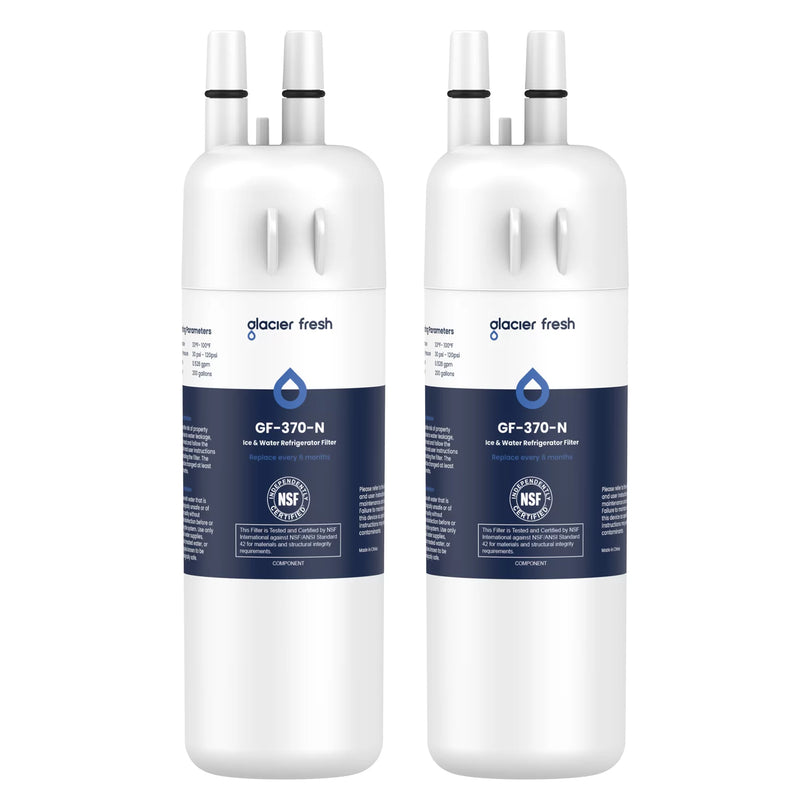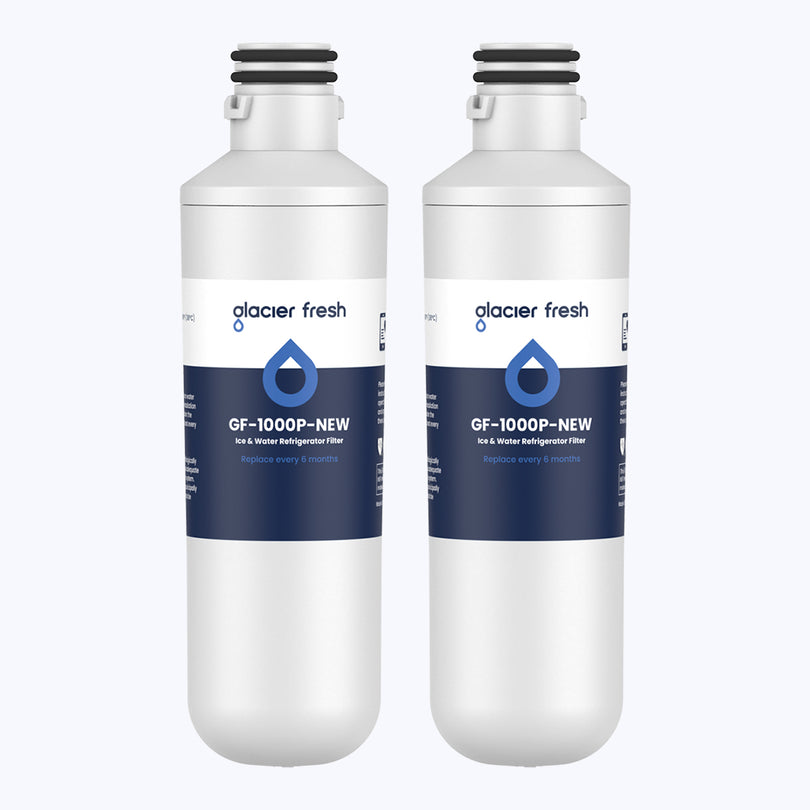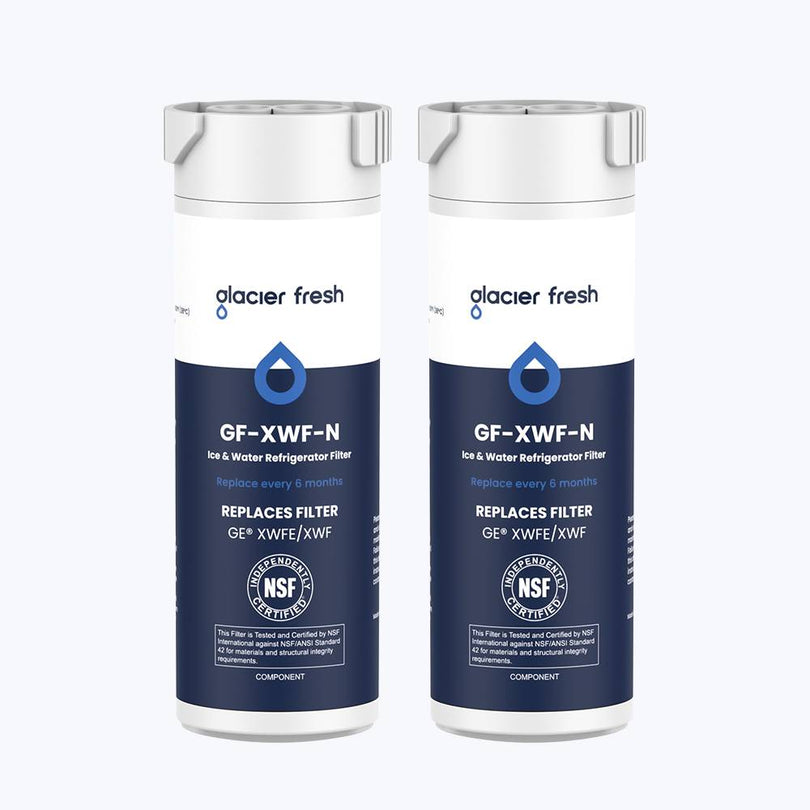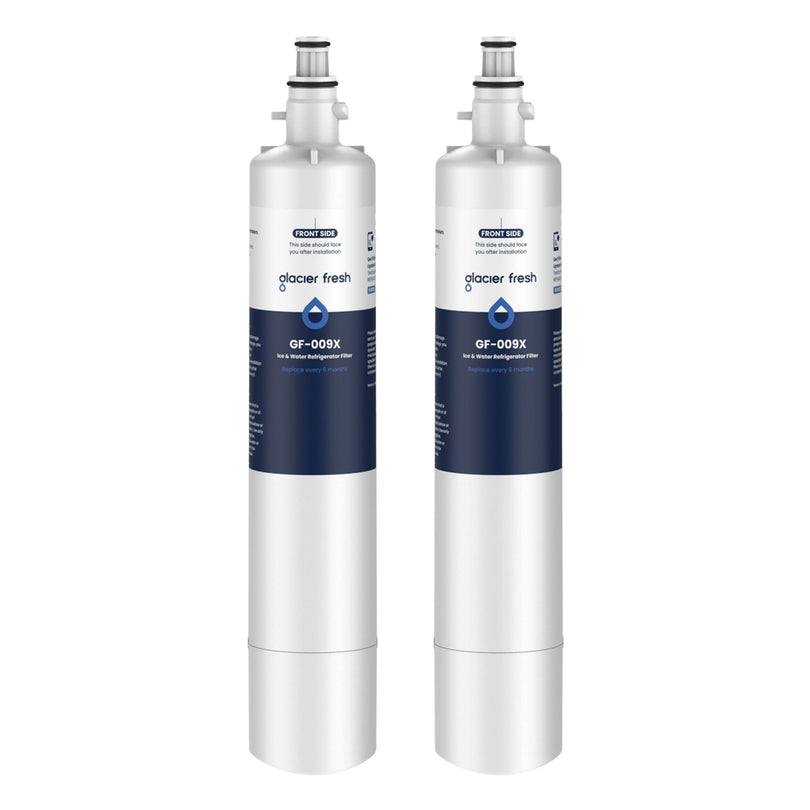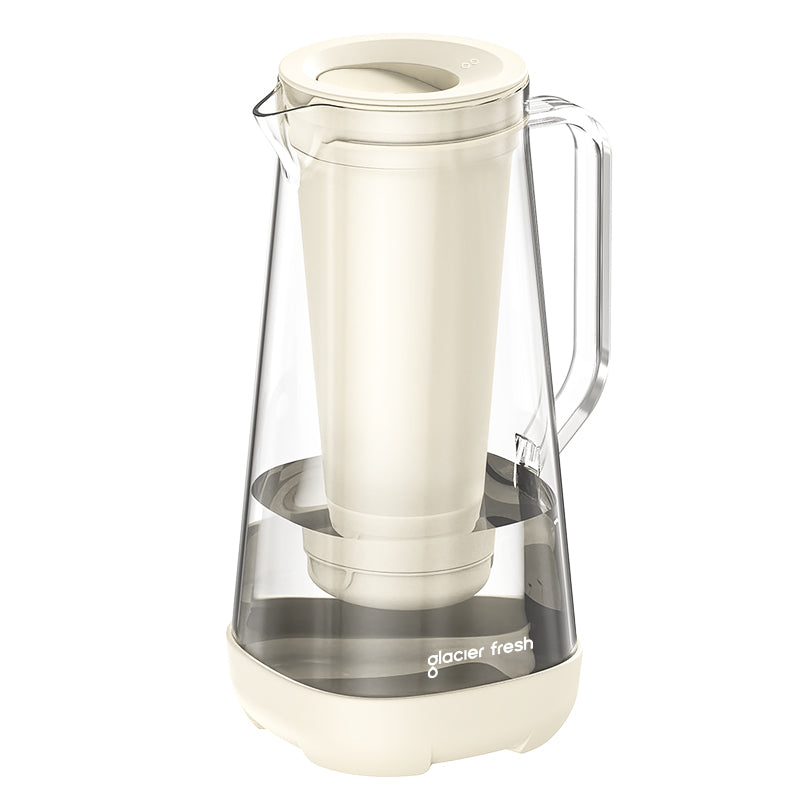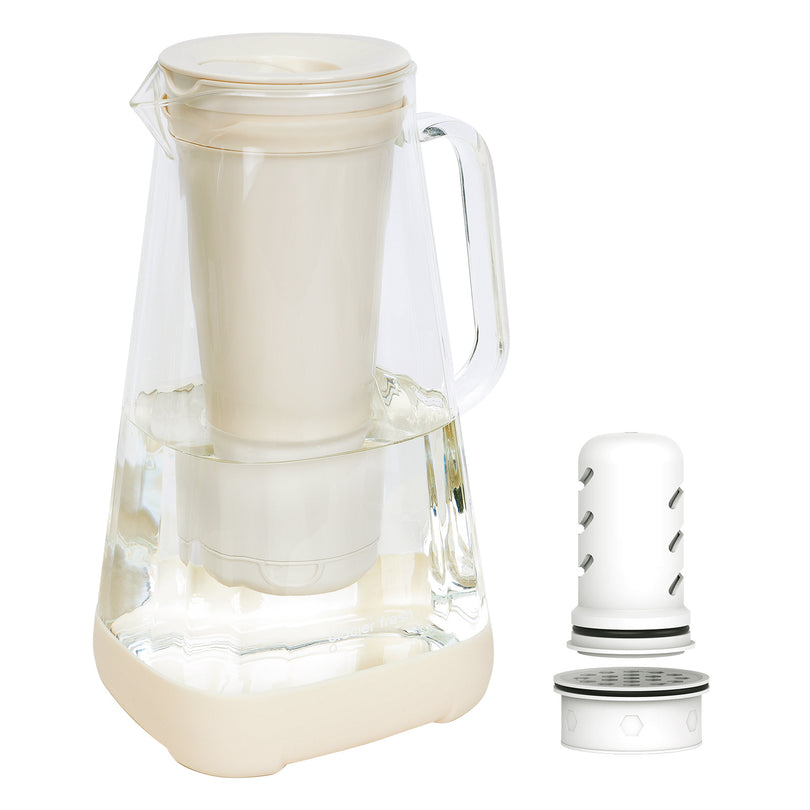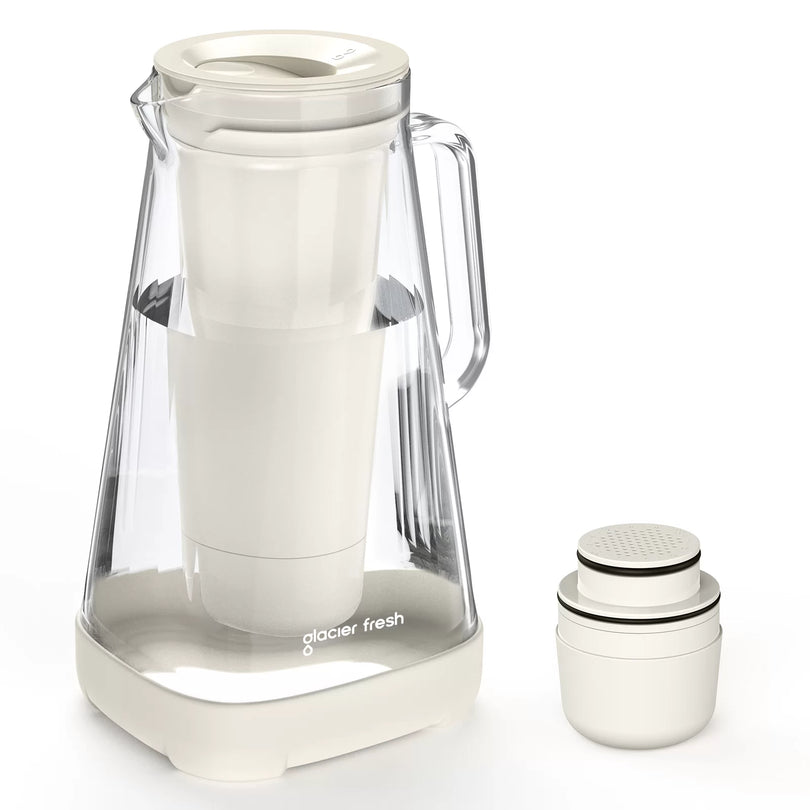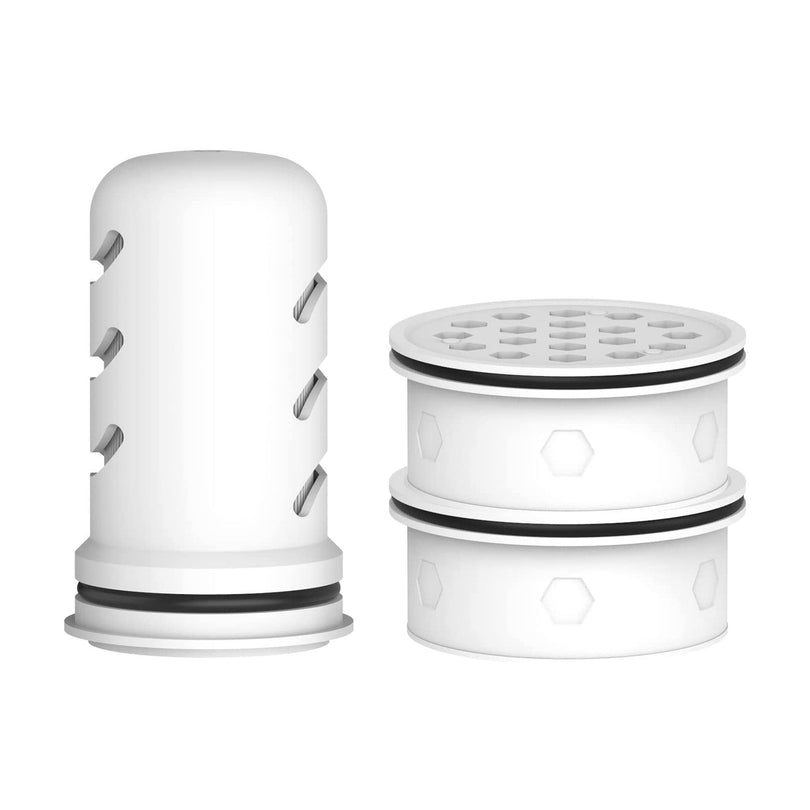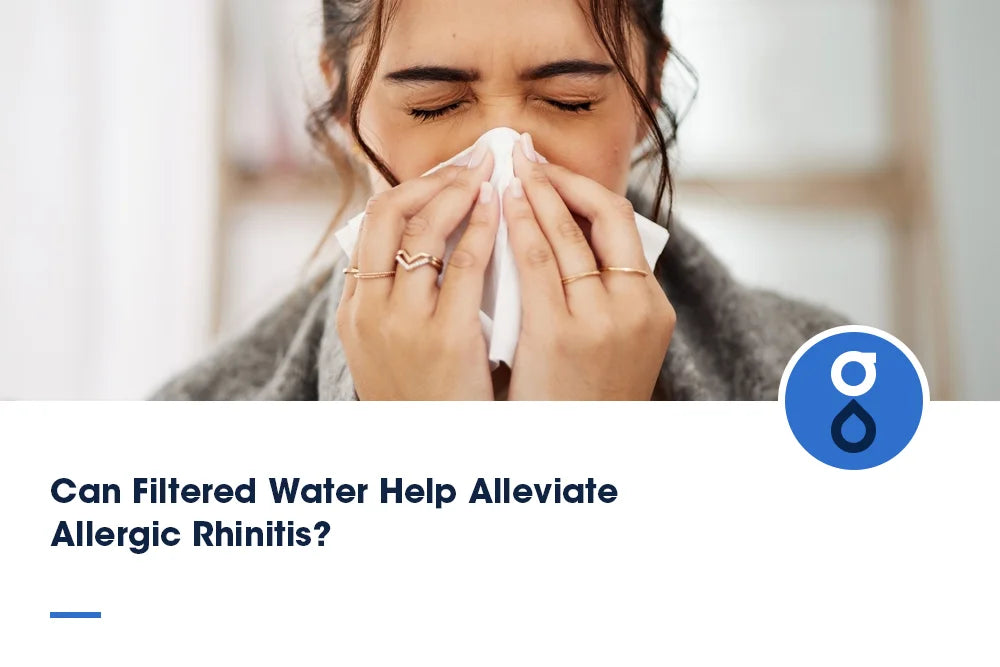Table of Contents:
Gefiltertes Wasser und Sprudelwasser verstehen
Wichtige Unterschiede zwischen gefiltertem Wasser und Sprudelwasser
Mögliche Nachteile von Sprudelwasser
Überlegungen für Menschen mit besonderen Gesundheitsbedürfnissen
Fazit: Was ist die gesündere Wahl für die Flüssigkeitszufuhr?
Abschluss
Sie haben wahrscheinlich schon den oft wiederholten Rat gehört, mehr Wasser zu trinken, aber haben Sie sich jemals gefragt, ob alles Wasser in Bezug auf Ihre Gesundheit gleich ist? Gefiltertes und Sprudelwasser sind zwei gängige Optionen, jede mit ihren eigenen Vor- und Nachteilen. Während Ersteres für seine Reinheit und Verträglichkeit gelobt wird, besticht es durch seine sprudelnde Konsistenz und sein Potenzial, den Heißhunger auf Limonade zu stillen. Aber welches ist wirklich das Beste in Sachen Flüssigkeitszufuhr? Lassen Sie uns diese Debatte näher betrachten; am Ende sind Sie besser gerüstet, um eine fundierte Entscheidung zu treffen.
Gefiltertes Wasser und Sprudelwasser verstehen

Gefiltertes Wasser ist normales Leitungswasser, das gereinigt wurde, um Verunreinigungen zu entfernen. Dieser Prozess kann den Geschmack deutlich verbessern und es für manche attraktiver machen. Es ist außerdem in der Regel reich an essentiellen Mineralien, die zu gesundheitlichen Vorteilen wie einer besseren Flüssigkeitszufuhr und einem gut funktionierenden Körper beitragen.
Sprudelwasser hingegen , auch als kohlensäurehaltiges Wasser bekannt, wird unter Druck mit Kohlendioxid versetzt, was ihm seine typische Kohlensäure verleiht. Trotz der Kohlensäure kann Sprudelwasser Sie genauso effektiv mit Flüssigkeit versorgen wie normales Wasser. Sprudelwasser hat oft den gleichen Mineralstoffgehalt wie gefiltertes Wasser und bietet ähnliche gesundheitliche Vorteile. Geschmacksvorlieben sind jedoch unterschiedlich, und manche Menschen empfinden die Kohlensäure als abstoßend.
Wichtige Unterschiede zwischen gefiltertem Wasser und Sprudelwasser
Ihre Geschmacksvorlieben tendieren möglicherweise eher zum prickelnden Sprudelwasser oder zum reinen, sauberen Geschmack von gefiltertem Wasser. Diese Vorlieben können Ihre Trinkgewohnheiten stark beeinflussen.
Die Vorteile beider Wasserarten für die Flüssigkeitszufuhr sind im Wesentlichen gleich. Sie stillen Ihren Durst und sorgen für eine reibungslose Körperfunktion. Der Mineralgehalt kann jedoch unterschiedlich sein. Gefiltertes Wasser kann je nach Quelle und Filterverfahren verschiedene Mineralien enthalten. Sprudelwasser enthält oft zugesetzte Mineralien, die einen leichten Nährstoffvorteil bieten können.
Die kohlensäurehaltige Wirkung von Sprudelwasser kann es zu einer erfrischenden Alternative zu stillem, gefiltertem Wasser machen. Darüber hinaus können die Kohlensäure die Verdauung fördern, was manche sogar bestätigen. Bedenken Sie jedoch: Das Sprudeln mag zwar angenehm für den Gaumen sein, trägt aber nicht zur hydratisierenden Wirkung des Wassers bei.
Mögliche Nachteile von Sprudelwasser

Sprudelwasser bietet zwar eine erfrischende Alternative zu stillem, gefiltertem Wasser, hat aber auch Nachteile. Die Kohlensäure kann zu Blähungen oder Unwohlsein führen, insbesondere bei Menschen mit Verdauungsproblemen.
Obwohl es sich um Wasser handelt, löschen Sprudelgetränke Ihren Durst möglicherweise nicht so effektiv. Die Kohlensäure macht satt und kann Ihren Flüssigkeitshaushalt insgesamt beeinträchtigen.
Auch der Säuregehalt ist zu berücksichtigen. Sprudelwasser ist saurer als normales Wasser, was mit der Zeit zu Zahnproblemen führen kann. Die Säure kann den Zahnschmelz angreifen und so zu Karies und Zahnempfindlichkeit führen. Zusammenfassend hier eine kurze Übersicht in Tabellenform:

Sprudelwasser ist zwar nicht unbedingt schlecht, aber es ist wichtig, diese potenziellen Nachteile zu bedenken, wenn Sie es als Getränk Ihrer Wahl trinken. Mäßigung ist der Schlüssel. Für eine optimale Flüssigkeitszufuhr und einen gesundheitlichen Nutzen ist der Wechsel mit stillem, gefiltertem Wasser immer am besten.
Überlegungen für Menschen mit besonderen Gesundheitsbedürfnissen
- Für Menschen mit Verdauungsproblemen
-
- Sprudelwasser kann Blähungen und Völlegefühl lindern, kann aber bei manchen Menschen mit Reizdarmsyndrom (IBS) oder saurem Reflux auch zu Reizungen führen.
- Gefiltertes Wasser ist magenschonend und ideal für empfindliche Verdauungssysteme.
- Für Menschen mit empfindlichen Zähnen
-
- Die Auswirkungen von Sprudelwasser auf den Zahnschmelz und Möglichkeiten zur Minimierung möglicher Schäden.
- Der neutrale pH-Wert von gefiltertem Wasser macht es zu einer sichereren Option für die Zahngesundheit.
- Für Schwangere
-
- Während der Schwangerschaft ist eine ausreichende Flüssigkeitszufuhr erforderlich und es ist wichtig, ausreichend Wasser zu trinken.
- Ist Sprudelwasser sicher? Überlegungen zu Kohlensäure und Zusatzstoffen.
- Gefiltertes Wasser ist die optimale Wahl für die Flüssigkeitszufuhr während der Schwangerschaft .
- Für Sportler
-
- Flüssigkeitsbedarf für körperliche Aktivität und Leistung.
- Vergleich der Flüssigkeitszufuhr von gefiltertem und Sprudelwasser für Sportler.
- Kohlensäurehaltiges Wasser ist möglicherweise nicht ideal für eine schnelle Flüssigkeitszufuhr bei intensivem Training, während gefiltertes Wasser besser zur Rehydrierung geeignet ist .
Fazit: Was ist die gesündere Wahl für die Flüssigkeitszufuhr?
Gefiltertes und Sprudelwasser haben beide ihren Platz im Bereich der Flüssigkeitszufuhr. Die Wahl zwischen den beiden hängt oft von Ihren Geschmacksvorlieben und gesundheitlichen Bedürfnissen ab.
Gefiltertes Wasser ist aufgrund seiner Reinheit und des Fehlens von Zusatzstoffen im Allgemeinen die bessere Wahl für die tägliche Flüssigkeitszufuhr. Es enthält keine Kalorien und ist daher eine gesündere Wahl, wenn Sie auf Ihr Gewicht achten. Es schont außerdem Ihre Verdauung und kann Ihnen helfen, den ganzen Tag über ausreichend Flüssigkeit zu sich zu nehmen, ohne dass die Verdauung beeinträchtigt wird.
Sprudelwasser hingegen bietet seine Vorteile bei der Flüssigkeitszufuhr. Seine Mineralstoffzusammensetzung kann Ihre Ernährung ergänzen, insbesondere wenn Sie mehr Mineralien aus der Nahrung benötigen.
Beachten Sie jedoch, dass einige Marken Zucker oder künstliche Aromen enthalten können, die den Kaloriengehalt erhöhen können. Letztendlich ist es wichtig, auf Ihren Körper zu hören. Wenn Sprudelwasser zu Blähungen führt, bleiben Sie bei gefiltertem Wasser. Sprudelwasser kann jedoch eine gute Wahl sein, wenn Sie das Sprudeln mögen und es Sie dazu anregt, mehr Wasser zu trinken.
Abschluss
Sie überlegen also, ob Sie gefiltertes oder Sprudelwasser trinken möchten. Beide haben ihre Vorteile, aber gefiltertes Wasser ist für die allgemeine Gesundheit und das Wohlbefinden die beste Wahl. Es ist rein, frei von Zusatzstoffen und schont Ihren Körper. Sprudelwasser kann eine angenehme Abwechslung sein, besonders wenn Sie Limonade trinken. Bedenken Sie jedoch, dass es zu Blähungen und Zahnproblemen führen kann. Sorgen Sie mit Glacier Fresh für ausreichend Flüssigkeitszufuhr , aber trinken Sie Sprudelwasser lieber ab und zu als regelmäßige Flüssigkeitszufuhr.

